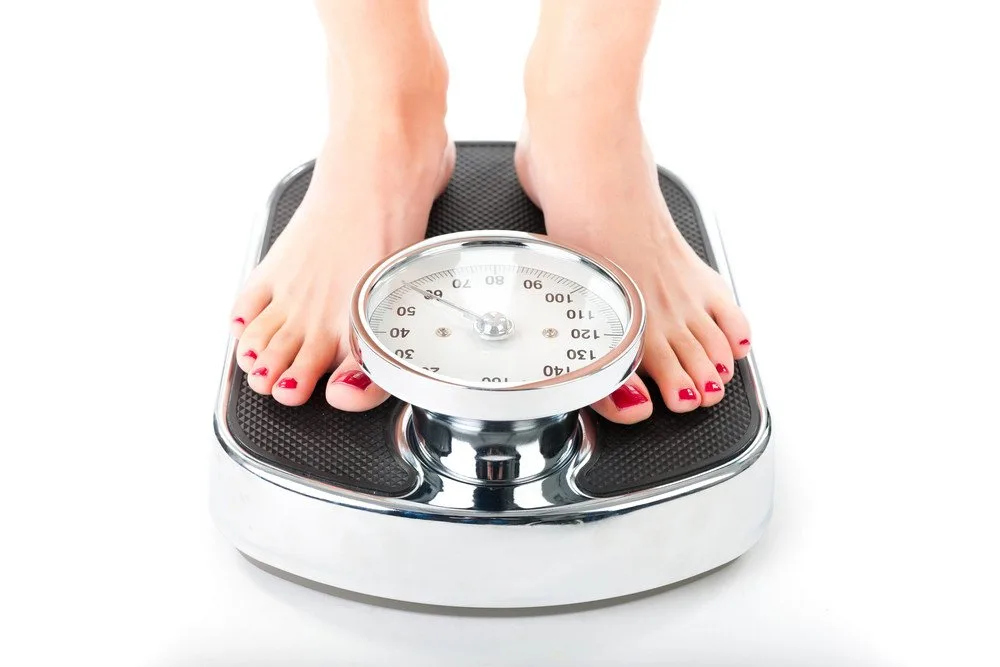As you get older, it can become harder to maintain your weight, and this is why so many people struggle with weight loss after they turn 50. While it may be harder to lose weight, it’s not impossible and with the right tips, older adults can work to maintain and manage their weight.
Why Is It Hard To Lose Weight After 50?
In regards to weight loss, age is a factor that needs to be considered as the passing years have an effect on your hormones, metabolism, activity levels, and how your body stores fat. As the years pass by, your metabolism slows down, and you experience an increase in fat mass, whilst experiencing a decrease in muscle mass.
All these factors can play a significant role in your weight loss plans. As such, it is important to be conscious of them before you begin your weight loss journey.
Now, while age-related factors can make your weight loss journey a little strenuous, that doesn’t mean that you should abandon the path, as the following tips can help you lose weight and maintain weight loss in your 50s.
10 Ways to Lose Weight After 50
1. Try mindful eating
If you’re looking for a new eating plan to help with your weight loss journey in your 50s, might you try mindful eating? This style of eating encourages one to be more present during their meals, paying closer attention to their meal and dietary habits.
“Sit down, slow down, remove all distractions, and enjoy your food,” says performance nutritionist, Lily Chapman to Fit and Well, “This can help you become more in tune with feelings of fullness and make the meal taste that much better—it’s a win-win!”
Mindful eating won’t only help improve your relationship with food, but according to a paper published in Nutrition Bulletin, mindful eating has the potential to encourage weight loss.
2. Enjoy healthier snacks
According to the Harvard T.H. Chan School of Public Health, snacking can lead to both weight gain and weight management, but it’s all about what you’re snacking on.
Instead of snacking on sugary treats and candy, it would be advisable to snack on healthier snacks, like nuts, seeds, and fruits, as these options are less likely to lead to weight gain.
3. Eat enough fruits and vegetables
Fruits and vegetables are rich in many essential nutrients and are a great addition to your diet, at any age.
If you’re concerned about weight loss, it would be advisable to include more produce in your diet as it will fill you up with essential vitamins and minerals, instead of fat and calories.
Per a study published in PLoS Medicine, participants who increased their intake of produce over a 24-year period were more likely to have lost weight than those who ate the same amount or those who decreased their intake.
4. Pack on the protein
As we age, the body’s storage of protein decreases, and this can then cause age-related muscle loss (sarcopenia), which can then make it harder to exercise, leading to weight gain.
Including more protein in your diet, like quinoa, fish, chicken breasts, lentils, legumes, and almonds, can help to prevent muscle loss, as well as encourage weight loss, as it helps you feel fuller for longer.
5. Get enough sleep
Sleep quality can decrease as we get older, as the levels of melatonin (the “sleep hormone”) decrease with age, making it harder to fall asleep and enjoy quality sleep. This not only leaves one grumpier and fatigued in the mornings, but one study found that people who sleep less consume more calories, and they also crave higher-calorie foods.

Photo by Dominic Sansotta on Unsplash
It’s important to get at least 7–9 hours of sleep each night. If you’re struggling to achieve this, try using essential oils, minimizing light in your bedroom, and avoiding using your phone or watching TV before bed.
6. Lift weights
As mentioned, you lose both muscle mass and strength in your 50s, but taking up strength training can help mitigate this loss, and even strengthen your bones, thus reducing the risk of injuries and falls in the future.
In regards to weight management, strength training not only helps reduce body fat, but also boosts your metabolism, which we know is great for weight loss.
7. Manage your stress levels
Life can get stressful, but if you let this stress run your life, then you risk it harming your health and your weight loss goals.
According to research from UT Southwestern Medical Center, patients with obesity who experienced the highest levels of stress, anxiety, and depression during the COVID-19 pandemic reported the highest weight gain. It appears that increased levels of the stress hormone cortisol increase both your appetite and your cravings for sweet and fatty foods, which then leads to weight gain.
To manage your stress levels, try meditation, reading your favorite book, watching your comfort film, or reaching out to a confidante.
8. Have fun with exercise
For many people, exercising can seem like a daunting and miserable activity, especially if it’s never been part of your lifestyle. Yet, if you find a fun and enjoyable way to keep fit, then you’re more likely to stick to it and reap the benefits.
Group exercises, yoga, dancing, pole dancing, and swimming are each fun and engaging ways for you to stay active and manage your weight.
9. Visit your doctor
If you’ve followed all the tips, and are still struggling with your weight, then it may be time to visit your doctor.
The risk of metabolic disorders, such as hypothyroidism, is higher in your 50s, and these conditions can make it difficult to lose weight, so it would be advisable to check in with your doctor.
10. Love yourself.
Regardless of your weight, your health – both physical and mental – is still the most important thing, and you should not compromise either because you don’t like the number on the scale. While these tips can help with your weight loss goals, always remember that your health should always come first.
References
Almandoz, J. P., Xie, L., Schellinger, J. N., Mathew, M. S., Marroquin, E. M., Murvelashvili, N., Khatiwada, S., Kukreja, S., McAdams, C., & Messiah, S. E. (2022). Changes in body weight, health behaviors, and mental health in adults with obesity during the COVID-19 pandemic. Obesity, 30(9), 1875-1886. https://doi.org/10.1002/oby.23501
Moreira, M. A., Gomes Fernandes, S. G., Azevedo, I. G., & Cavalcanti Maciel, Á. C. (2022). Metabolic syndrome in middle-aged and older women: A cross-sectional study. Women’s Health, 18. https://doi.org/10.1177/17455065211070673
Tapper, K. (2022). Mindful eating: What we know so far. Nutrition Bulletin, 47(2), 168-185. https://doi.org/10.1111/nbu.12559
Tasali, E., Wroblewski, K., Kahn, E., Kilkus, J., & Schoeller, D. A. (2022). Effect of Sleep Extension on Objectively Assessed Energy Intake Among Adults With Overweight in Real-life Settings: A Randomized Clinical Trial. JAMA internal medicine, 182(4), 365–374. https://doi.org/10.1001/jamainternmed.2021.8098



![women [longevity live]](https://longevitylive.com/wp-content/uploads/2020/01/photo-of-women-walking-down-the-street-1116984-100x100.jpg)










